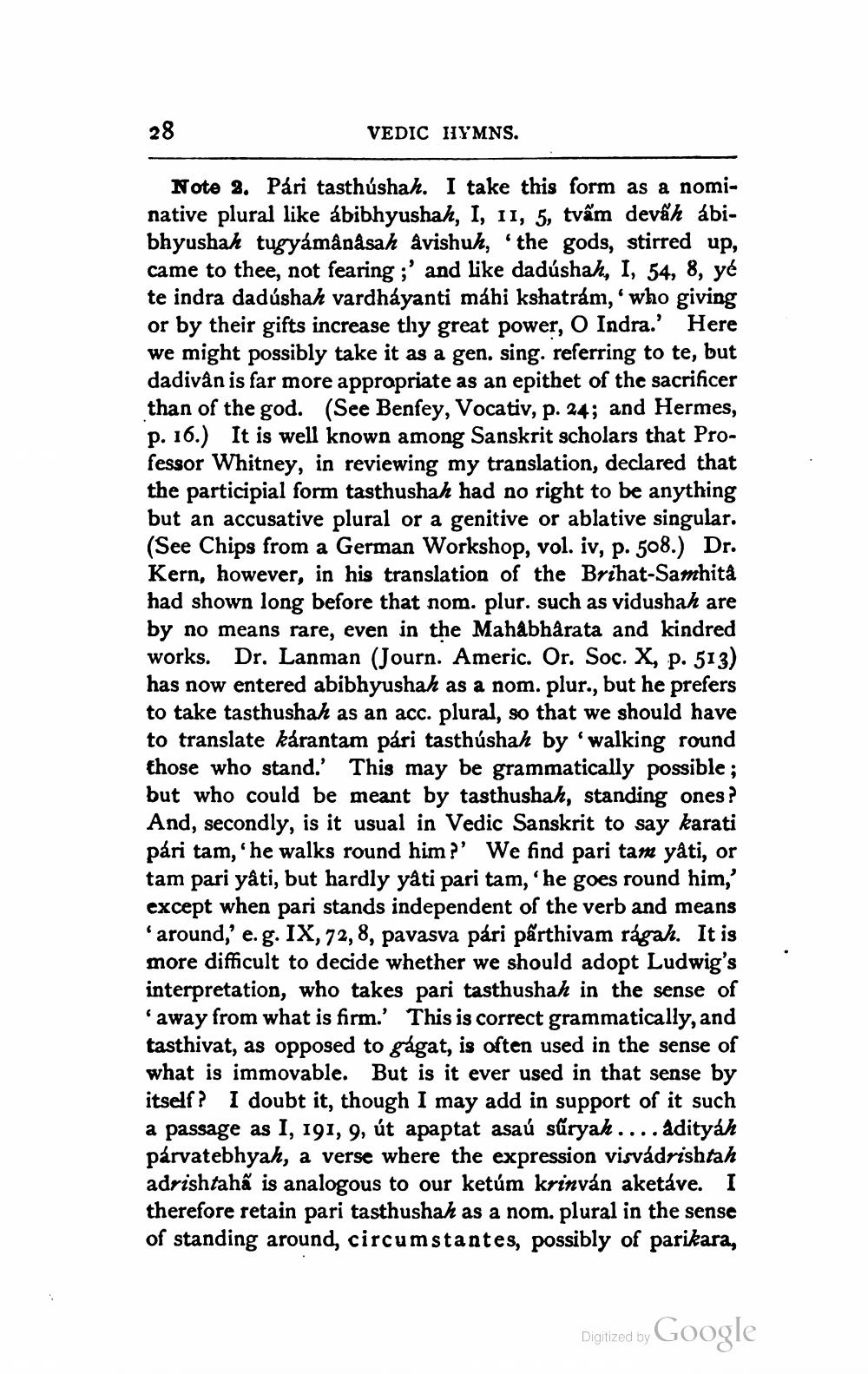________________
28
VEDIC HYMNS.
Note 8. Pári tasthúshah. I take this form as a nominative plural like abibhyushah, I, 11, 5, tvãm deváh abibhyushah tugvámånåsah avishuh, the gods, stirred up came to thee, not fearing ;' and like dadúshah, I, 54, 8, yé te indra dadúshah vardhayanti máhi kshatrám, 'who giving or by their gifts increase thy great power, O Indra. Here we might possibly take it as a gen. sing. referring to te, but dadivan is far more appropriate as an epithet of the sacrificer than of the god. (See Benfey, Vocativ, p. 24; and Hermes, p. 16.) It is well known among Sanskrit scholars that Professor Whitney, in reviewing my translation, declared that the participial form tasthushah had no right to be anything but an accusative plural or a genitive or ablative singular. (See Chips from a German Workshop, vol. iv, p. 508.) Dr. Kern, however, in his translation of the Brihat-Samhita had shown long before that nom. plur. such as vidushah are by no means rare, even in the Mahabhårata and kindred works. Dr. Lanman (Journ. Americ. Or. Soc. X, p. 513) has now entered abibhyushah as a nom. plur., but he prefers to take tasthushah as an acc. plural, so that we should have to translate karantam pári tasthúshah by 'walking round those who stand.' This may be grammatically possible ; but who could be meant by tasthushah, standing ones? And, secondly, is it usual in Vedic Sanskrit to say karati pári tam,'he walks round him?' We find pari tam yâti, or tam pari yâti, but hardly yati pari tam,'he goes round him,' except when pari stands independent of the verb and means
around,' e.g. IX, 72, 8, pavasva pári pârthivam rágah. It is more difficult to decide whether we should adopt Ludwig's interpretation, who takes pari tasthushah in the sense of away from what is firm.' This is correct grammatically, and tasthivat, as opposed to gágat, is often used in the sense of what is immovable. But is it ever used in that sense by itself? I doubt it, though I may add in support of it such a passage as I, 191, 9, út apaptat asaú sűryah.... adityah párvatebhyah, a verse where the expression visvádrishtah adrishtahã is analogous to our ketúm krinván aketáve. I therefore retain pari tasthushah as a nom. plural in the sense of standing around, circumstantes, possibly of parikara,
Digized by Google




